Sometimes, it’s hard to eat healthy when you’re on a budget.
However, even if you are on a budget, don’t eat ramen if you’re trying to stay healthy. There are better options, and that’s what we are going to explore today.
- Buy What You Need, Not What You Want
- Buy Generic Or Store Brands
- Find Items On Sale
- Use Coupons
- Buy In Bulk
- Eat More Veggies
- Frozen Foods
- Choose High Protein Foods
- Eat Locally and Seasonally
- Make Enough for Leftovers
- The Bottom Line
Table of Contents
+Buy What You Need, Not What You Want

The old adage is true: don’t buy groceries on an empty stomach. If you do, everything looks good, and you won’t be as discerning a shopper as you should be.
The key is to make a list, and stick to it. Before you leave, search through your pantry and fridge and identify exactly what you’ll need for the week ahead. Then write it down.
Once you’re in the grocery store, check the items off the list. Do not add items to your cart if they are not on the list.
Buy Generic Or Store Brands
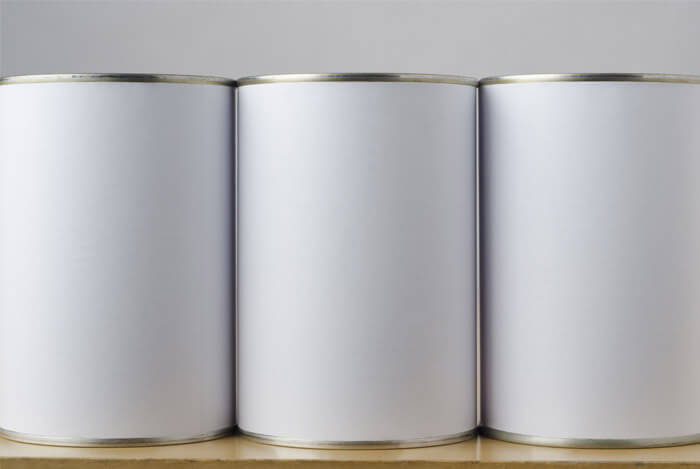
When it comes to canned vegetables and seasoning, the ingredients rarely have any difference at all from the popular brand name items. US News and World Report has even created a list of grocery items you should always buy generic.
When you walk down the aisles, remember to look down. Supermarkets place their more highly marketed brand name items at eye level. The cheaper stuff is usually closer to the floor, or sometimes pushed farther back out of reach on the shelves.
Find Items On Sale
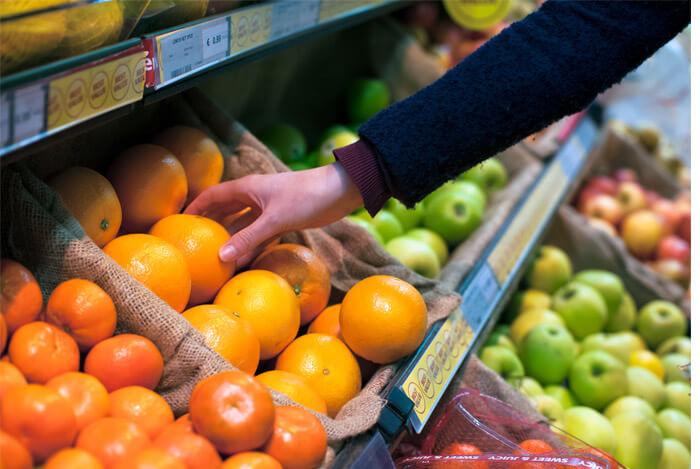
If you read the newspaper, sometimes you’ll find a flyer with a bunch of pictures of food on it. Don’t throw it away – it can tell you all of the best deals you can find in your nearest grocery store.
Items that are close to expiring (often found later at night) will be on sale, sometimes up to a 90% discount. They may not last as long in your pantry, but if you cook them up quickly, you’ll get your money’s worth.
When you’re making your shopping list, know in advance what’s on sale. Or, if you aren’t sure, ask one of the employees of the store where you can find information on sales so you can keep your eye on grabbing good deals.
Use Coupons

You don’t always have to be extreme. Even casually using the occasional coupon can save you money over time, and can often score you higher quality food items you might not have purchased otherwise.
You can almost always find coupons in Sunday newspapers, or even when you first walk into grocery stores if you look around a little. The Internet is also an awesome source of coupons.
Buy In Bulk

If you know you’re going to use the same food items in regular meals, buy them in larger quantities.
But remember, don’t buy an item in bulk if you haven’t tried it before. You don’t want to waste your hard earned money on twenty packs of something that’s just going to take up pantry space.
Keep track of cost per unit. A unit is the amount of something you’re actually getting. This might take a little math, but hey, if you’re broke, it’ll be worth the effort. When out shopping it’s always a great idea to carry a calculator, and thankfully most of us have one available on our smart phones!
So use your calculator to do a bit of simple math. Find out how many units of something you’ll actually be buying. For instance, a fluid ounce of ketchup is a unit.
Take the total cost of that bottle of ketchup and divide by the number of units in the bottle to figure out the cost per unit.
Eat More Veggies
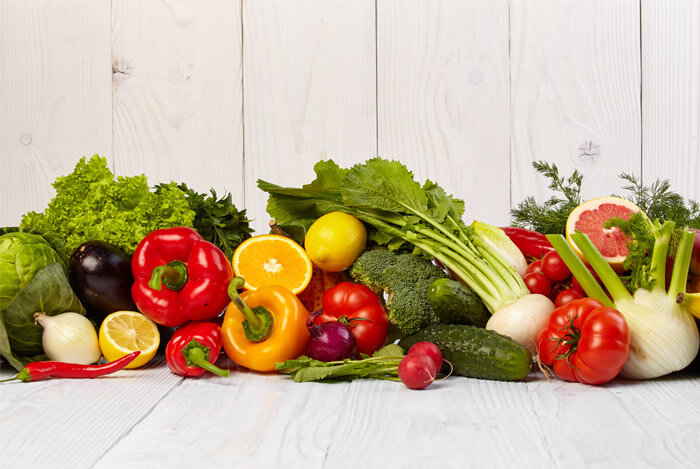
The idea that fast food is always cheaper than vegetables is mostly a myth.
The USDA Economic Research Service found that out of 94 vegetables studied, more than half of them were less than 50 cents per one-cup serving.
So, make an effort to eat more vegetables. If you make vegetables a regular part of your diet, you’ll be getting a huge amount of nutrients you wouldn’t get otherwise.
Frozen Foods

A lot of the time, you can only find certain foods in frozen form because they’re out of season or not available in your location. But don’t worry – if you’re on a budget, frozen foods can be just as healthy and filling as fresh ones.
Try to find frozen vegetables that are picked at peak ripeness.
If you can afford the fresh foods, go for them instead. But if you’re pressed for cash, the frozen option is a great substitute, and you can buy them in bulk.
Choose High Protein Foods
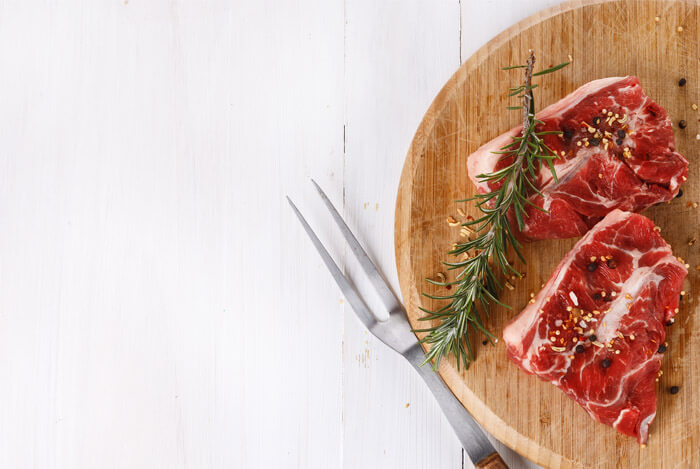
If you’re looking for the biggest bang for your buck, buy foods that are high in protein.
While red meat is full of protein, it might be more expensive, so look for protein sources like eggs, chicken breast, canned tuna, peanut butter, Greek yogurt, beans, and nuts – though sometimes these babies can be a little pricey.
Still, the point is that these sources of food provide you with more protein, keeping you satisfied, while at the same time keeping a strap on your wallet.
Eat Locally and Seasonally
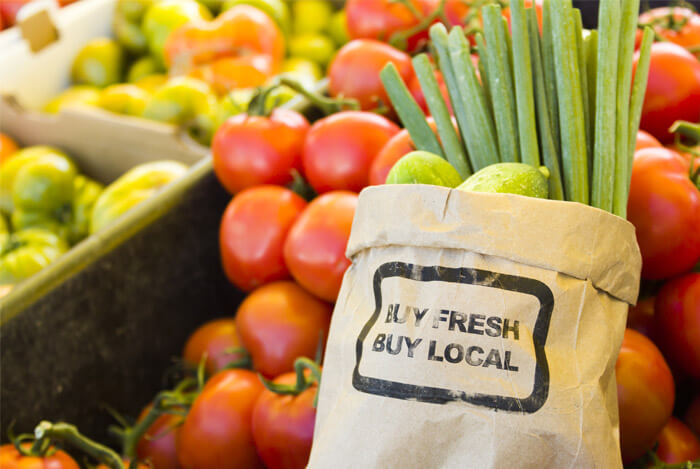
One way to guarantee you’ll save money and support your local economy is to find out what foods are produced in your area.
Since they have less distance to travel, the distribution costs are lower, and that means foods grown locally will often be cheaper than similar products shipped from somewhere in Europe or South America (or even the next state over if you happen to be an American).
Also, knowing when certain foods are in season and shaping your diet around those foods during those times of the year can not only be cheaper, but healthier.
Also, because they didn’t have to sit in the back of a delivery truck for days or be shipped from another continent, they may be fresher and tastier.
A local, seasonal diet can not only save you money, but can keep local farmers in business. And it can also provide you with a more diverse range of food for your body and your taste buds.
Make Enough for Leftovers

When you decide to cook a meal, make as much as possible as long as it can keep.
So when you start gathering ingredients, don’t limit how much you put in. Increase each of your items proportionally until you’ll have enough to eat the next day, or the next week. If the meal was healthy to begin with, why not eat it again?
Invest in a slow-cooker. You can throw pretty much anything you can imagine into a stew, let it cook for a few hours, then have food for days. And there are all kinds of healthy, delicious recipes you can try that will make great leftovers.
Learn to store your items too. Buy plastic wrap and reusable containers that help keep your food fresher, longer.
The Bottom Line
If you follow these tips, you should be able to master the thrifty, healthy lifestyle.
And I know – it’s hard when you can’t go crazy at the grocery store and fill your basket with all the goodies you desire. But at least you know that what you’re getting is worth the price and can keep you healthy.










